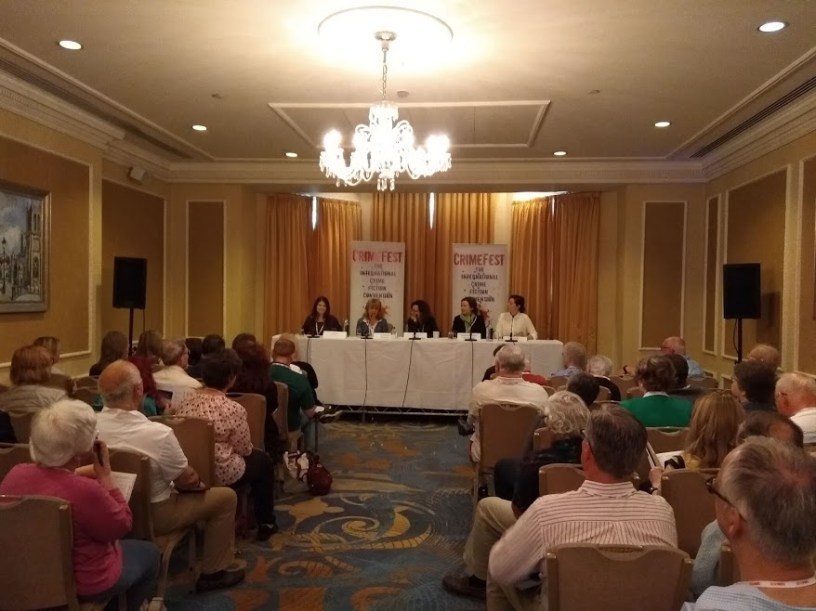In the CrimeFest 2018 panel “Genre And Sub–Genre: Why We Write What We Write,” an all-female panel of crime writers examined the distinctive qualities of the crime genre and how it interacts with other genres. For a panel of authors whose book jackets tend towards the highly generic, their comments were refreshingly diverse and insightful.
One striking point was that, as moderator Alison Joseph observed, “nobody really meant to be a crime writer.” As Amanda Robson remarked, “it wasn’t the first thing that came naturally.” Leigh Russell said, “I didn’t know I was writing crime until I’d actually written crime.” Her starting point was more dramatic and psychological. “I’m interested in writing people who are working from extreme situations and dilemmas.” Michelle Sacks also said she “didn’t set out to write crime fiction,” but “had a story, and that story developed.”
That said, the panel were also very clear on some of the most distinguishing features of the genre, not least its focus on moral dilemmas and resolution. As Valentina Giambanco noted, “the world is in chaos. And then somehow there is order and closure.” Russell outlined Conan Doyle’s position as a creator of a moral agent in the poorly policed, dangerous streets of Victorian London.[“Sherlock Holmes in some ways is a precursor of Superman as much as the modern detective, because he always caught the killer.” Robson noted that it is escapism, as most readers have little to do with crime. Yet, “crime fiction does have a clear moral compass,” Russell added. “People feel that some sort of moral order has been restored, which we don’t always feel in real life… Crime fiction does answer a very deep need in us to feel that there is justice.”
Regarding genre structure and expectations, Valentina Giambanco concedes that she does write police procedurals, but adds that “I try to subvert the genre as much as possible,” because breaking or bending the rules is more interesting. Amanda Robson added that as “a middle-class middle-aged housewife of Twickenham,” she obviously has little direct experience of crime, but relies on input from police friends and contacts -or even former prisoners – to get the right input and ideas.
Answering a question about the female perspective in general, the all-woman panel mostly dismissed the issue as peripheral at best to their own work and the genre. Russell did observe that “women tend to read more in general,” but noted that essentially “we’re all the same, we all have the same fears and anxieties,” especially regarding the concerns of crime and thriller fiction. Giambanco did point out that her first couple of books appeared with her initials rather than her full name, because the publishers “thought that Valentina was too girly” but then added, “I so enjoy writing from the point of view of male characters.” Sacks remarked that “the sub-genre of the domestic thriller is definitely geared more towards women”.
Asked what other genres or sub-genres impact their work most, Sacks answered “it’s probably the sub-genres,” citing particularly psychological thrillers and domestic thrillers. Outside her own genre space, however, she reads widely in order to cultivate “exceptional craft.” Robson cited historical fiction and dual timeline thrillers, and Joseph agreed that the historical thing is very interesting” “history and story are very connected.” Giambanco remarked that, “I really enjoy YA fiction” which “changes the rhythm of the story.” All appear resolved, though, to continue working within the genre.

